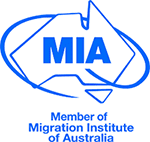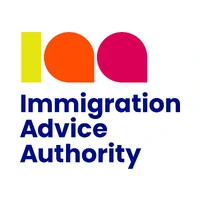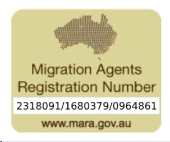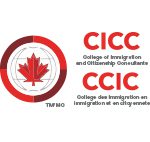The Canada Study Visa, officially known as a study permit, allows international students to pursue academic programs at recognized institutions in Canada. Issued by Immigration, Refugees and Citizenship Canada (IRCC), this visa not only facilitates world-class education but also offers the opportunity to work part-time and apply for a Post-Graduation Work Permit (PGWP) after completion of studies.
Canada has released the 2026 study program allocation and will welcome 408,000 international students.
| Category | Allocated Study Permits |
| PAL/ TAL required applicants | 1,80,000 |
| Master’s and doctoral students (PAL/TAL exempt) | 49,000 |
| Primary and secondary school (kindergarten to grade 12, also PAL/TAL exempt) | 1,15,000 |
| Other PAL/TAL-exempt study permit applicants | 64,000 |
| Total | 4,08,000 |
To apply for a Canada Study Visa, you must:
| Document | Description |
| Letter of Acceptance (LOA) | From an approved DLI |
| Proof of Funds | Sufficient to cover tuition and living costs |
| Passport | Valid for entire study duration |
| Statement of Purpose (SOP) | Academic goals and study rationale |
| IELTS / TOEFL Score | English/French proficiency for admission |
| Police Certificate | Verified clean criminal record |
| Medical Exam | Required for certain countries/programs |
| Intake | Month/s |
| 1st | January |
| 2nd | May |
| 3rd | September |
| QS World University Rankings 2024 | ||
| Canada Rank | Global Rank | University |
| 1 | 21 | University of Toronto |
| 2 | 30 | McGill University |
| 3 | 34 | University of British Columbia |
| 4 | 111 | University of Alberta |
| 5 | 112 | University of Waterloo |
| 6 | 114 | Western University |
| 7 | 141 | Université de Montréal |
| 8 | 182 | University of Calgary |
| 9 | 189 | McMaster University |
| 10 | 203 | University of Ottawa |
The other popular universities in Canada that you, as an international student, can opt for are:-
Regarding higher education, Canada is the preferred choice for international students. It is home to some of the most well-known affordable universities and colleges in the world compared to the USA, UK, and other English-speaking nations.
| S. No. | University | Annual Fees in CAD |
| 1 | Algonquin College | 16000 to 22000 |
| 2 | Bow Valley College | 18000 to 35000 |
| 3 | Brandon University | 13000 to 15000 |
| 4 | Canadian Mennonite University | 17000 |
| 5 | Dalhousie University | 9192 / year |
| 6 | University of Calgary | 24400 for UG |
| 7 | University of Guelph | 32000 for UG 15000 to 30000 for PG |
| 8 | University of Manitoba | 17000 to 25000 |
| 9 | University of Saskatchewan | 19130 to 30060 |
| 10 | Memorial University of Newfoundland | 11460 / year |
| 11 | Humber College | 12000 to 22000 |
| 12 | Northern Lights College | 10900 to 18556 |
| 13 | Conestoga College | 10500 to 12000 |
| 14 | University of St. Boniface | 4600 to 7500 |
| 15 | McGill University | 15324 to 29666 |
| 16 | Humber College | 10687 to 19807 |
| 17 | Lethbridge College | 4500 to 51800 |
| 18 | Simon Fraser University | 5300 / year |
| 19 | University of Prince Edward Island | 7176 / year |
| 20 | Carleton University | 7397 / year |
You can follow the below steps to apply for a Canada student visa:
Step 1: Choose a Designated Learning Institution (DLI) and secure an acceptance letter.
Step 2: Collect the required documents listed above.
Step 3: Submit your study permit application online through the IRCC portal.
Step 4: Pay the visa processing fee (CAD 150).
Step 5: Complete biometrics and attend an interview if requested.
Step 6: Await a decision from IRCC.
Step 7: Once approved, receive your Port of Entry Letter of Introduction and Electronic Travel Authorization (eTA), if applicable.
International students can work:
| Student Visa Type | Base Application Charges in CAD |
| Study permit (including applications for extensions) | 150 |
| Biometrics fees (per person) | 85 |
| Biometrics fees for a family (2 or more applicants) total fee for families applying together | 170 |
Graduates of eligible programs at PGWP-participating institutions may apply for a work permit valid up to 3 years. This is a valuable pathway for gaining Canadian work experience and qualifying for permanent residence under the Canadian Experience Class (CEC) via Express Entry.
| Criteria | Study Permit (Visa) | eTA (Electronic Travel Authorization) |
| Who Needs It? | UK citizens studying in Canada for more than 6 months | UK citizens studying in Canada for 6 months or less |
| Purpose | Long-term academic programs, degrees, diplomas | Short-term courses, language programs, or university exchange programs |
| Application Type | Online application via IRCC with full documentation | Online eTA application through IRCC |
| Processing Time | 4 to 10 weeks (varies) | A few minutes to a few days |
| Work Eligibility | Can work up to 20 hours/week if permit includes work conditions | Not permitted to work |
| PGWP Eligibility | Eligible if enrolled in a PGWP-approved institution | Not eligible |
| Biometrics Required | Yes | No |
| Entry Type | Single or multiple entry based on visa issued | Multiple entry for 5 years or until passport expiry |
Y-Axis offers comprehensive support at every stage of your Canada study journey, ensuring a smooth and successful transition:
Our Accreditations | |||
 |  |  |  |
Explore what Global Citizens have to say about Y-Axis in shaping their future
Canada Student Visa
Madhvi Varaiya is our esteemed client. S
Read More...
Canada Student Visa
Y-Axis received a great feedback from Me
Read More...
Canada Student Visa
This client provided us with great Y-Axi
Read More...
The average cost of living in Canada for international students depends on the city where you are located and the type of accommodation you choose alongside your regular expenses. Following are the average costs of living in Canada:-
| Type of Expenditure | Cost (CAD) |
| Accommodation | 2400 – 3200 |
| Books and Supplies | 500 – 1000 |
| Food | 940 |
| Other Expenses | 1540 |
Your Canada student visa can be rejected for the following common reasons if:-
1. Financial Instability: UK students applying for Canadian student visa have to prove they have sufficient financial reserves to support their stay in Canada. The Canadian embassy officials can reject your student visa application if they find that you are NOT financially strong enough to take care of your studies in Canada.
2. Academic Performance: like every other government, the Canadian government also sets eligibility for academic credits. If your academic performance is not up to the set standards of the government, it reserves the right to deny you a student visa.
3. Letter of Acceptance: If you applied for a Canadian student visa, you will get it only based on the 'letter of acceptance' you receive from your desired university. In case you do not receive the letter of acceptance from your preferred university, then your student visa will be rejected.
4. IETLS or TOEFL Score: As part of your Canadian student visa application, you must clear the minimum required marks for the English proficiency test. Your student visa application will be terminated if you don’t score the minimum marks in the IETLS and TOEFL tests which vary according to the choice of your program.
5. Inadequate Travel Documents: Your student visa will be rejected if your visa application doesn’t have a complete record of your travels or if your identity documents are unclear. To accept you into Canada for a medical condition or criminal conviction, the visa authorities reserve the right to deny you entry. Also, if you don’t provide sufficient documentation to support your travel history claims, it is up to visa officials to reject your student visa.
6. Intent to Return to Home Country: if you apply for a student visa, remember that it is a temporary visa with an expiry date, which means you have to return home once the student visa expires. Canadian visa officials, as such, will need to confirm that you will return to your home country after course completion. If they determine that you may settle down in Canada after completion of studies for whatever reason, they may straightaway reject your student visa.
7. Study Program Isn’t Consistent with Work and Qualification: Canadian authorities may well reject your student visa if the specialization you seek doesn’t match your past qualifications or work experience. You must explain why you are changing your field of specialization while studying in Canada to the immigration authorities. Your application for a student visa should also be substantiated with valid proof; otherwise, it will be rejected.
Canada is home to several globally top-ranked educational institutes that attract international students thanks to their world-class facilities and faculty. Universities in Canada are known for offering top-notch research and academic facilities supported by equally knowledgeable faculty. Universities of Canada are known for their excellent campus life and support systems designed to help international students settle down comfortably into student life.
You need to clear tests like IELTS or TOEFL exams to show your proficiency in English to study at Canadian universities, but even if you don’t clear them, universities offer many other options. Canadian universities make sure quality education, basic amenities, healthcare, and a good income are available to all, including international students looking to start their professional careers. Most Canadian universities offer programs that allow you as a student to focus on academic and scientific research, leading to breakthroughs that can benefit society.
As a holder of a Canada study permit, you must remain enrolled at a Canadian DLI, and make reasonable and timely progress to complete your program. If you fail to do so, you may be expelled from Canada. For PGWP holders, the DLI will report on your continuous enrolment and current academic status. An immigration officer is within their rights to change, cancel, or impose new conditions on your Canada study permit. These may include one or more of the following:-
a. type of course you may study
b. educational institute you may attend
c. time, and place to give compliance evidence of applicable conditions
d. work conditions on your study permit
e. time and period of your study
f. prohibition of engaging in employment
g. location of your study
h. duration of stay in Canada
i. time and place to report for medical examination or follow-up
Make sure you have all the documents to apply for a student visa and permit, and make sure you apply before you travel to Canada.
Once you receive a Canada student visa or study permit, you need to coordinate with your DLI for clarity on when to reach the institution, the date of student orientation commencement date of classes, and plan your travel to Canada accordingly.
Once you get your student visa, there are no restrictions on when you arrive in Canada. You need to make sure you have the ‘Letter of Introduction,’ which is an authorised document confirming your study permit approval. You must carry all the documents with you in person and not in checked-in luggage when arriving in Canada. These include your UK passport, letter of acceptance from your Canada DLI, proof of funds, and more.
Formalities for your entry into the Canadian border may take time, so you need to plan accordingly. Once your documents are checked, the immigration official may direct you to an immigration office to collect your Canada study permit. After getting it, be sure to check the details. Note you can’t work on/off campus till the start of your classes. Also, Canada receives the maximum number of travelers between August and September, so it would be better to avoid this period to enter Canada.
The application fee for a Canada student visa or a Canada study permit is around CAD 150, along with an additional biometric fee of CAD 85 per person.
The table below has the detailed Canada student visa costs:
| Student Visa Type | Base Application Charges in CAD |
| Study permit (including applications for extensions) | 150< |
| Biometrics fees (per person) | 85 |
| Biometrics fees for a family (2 or more applicants) total fee for families applying together | 170 |
To apply for a Canada study visa, most Designated Learning Institutions (DLIs) require a minimum IELTS score of 6.0 overall, with no band less than 5.5. However, requirements vary by institution and program. For undergraduate courses, an overall band of 6.0 is commonly accepted, while postgraduate programs may require 6.5 or higher. Immigration, Refugees and Citizenship Canada (IRCC) does not set a minimum IELTS score but expects students to meet the admission criteria of their chosen institution. Always confirm with the DLI and ensure your IELTS is from a recognized testing provider like IDP or British Council.
Yes, international students with a valid Canada study permit can work part-time during their academic session. You may work up to 20 hours per week off-campus without a separate work permit, and full-time during scheduled breaks, such as summer or winter holidays. This work right is applicable only if you’re enrolled full-time at a DLI and your program is at least six months long and leads to a degree, diploma, or certificate. Recent IRCC policy changes have also temporarily allowed eligible students to work more than 20 hours under certain conditions.
Processing times for a Canada study permit vary by country and time of year. For UK applicants, the average processing time is typically between 4 to 8 weeks. However, delays can occur due to incomplete applications, missing documents, or high seasonal volumes. Applicants using the Student Direct Stream (SDS), available to certain nationalities, may benefit from faster processing. It’s recommended to apply at least three months before your course begins to allow enough time for biometrics, medical exams (if required), and travel arrangements. You can track your application status online via the IRCC portal.
The Post-Graduation Work Permit (PGWP) is available to international students who complete a program of at least eight months in length at an eligible Designated Learning Institution (DLI) in Canada. However, not all DLIs or programs qualify. The PGWP allows graduates to work in Canada for up to three years, depending on the length of their program. To be eligible, students must have studied full-time and maintained a valid study permit throughout their course. Before enrolling, always confirm that the institution and program are PGWP-eligible on the official IRCC website to ensure future work eligibility.
Yes, international students in Canada are required to have health insurance, but coverage varies by province. Some provinces like Alberta, British Columbia, and Manitoba offer provincial health coverage to international students, while others require you to purchase private insurance. UK nationals must ensure they either enroll in a university-sponsored health plan or purchase private insurance if provincial coverage isn’t available. Health insurance must cover medical services, hospitalization, and emergency care. Having valid insurance is not only a legal requirement in most cases but also a practical necessity to avoid high medical expenses during your stay.
If an interview is required, the visa officer may ask questions to assess your eligibility, intent, and preparedness. Some of the most common questions may include:
Yes, studying in Canada can be a pathway to Permanent Residency (PR). After completing your studies, you may become eligible for a Post-Graduation Work Permit (PGWP), which allows you to gain Canadian work experience. This work experience can help you qualify for PR under Express Entry programs like the Canadian Experience Class (CEC) or Provincial Nominee Programs (PNP). Your chances improve if you meet language requirements, gain skilled work experience, and score well on the Comprehensive Ranking System (CRS). IRCC supports this pathway to help international graduates contribute to Canada’s workforce and economy.
If your Canada study visa application is refused, IRCC will provide a letter outlining the reasons, which may include lack of financial proof, unclear study intent, incomplete documents, or failure to meet eligibility criteria. You can reapply after addressing these issues or request an official GCMS notes copy for detailed insights. Before reapplying, it’s advisable to seek guidance from a regulated immigration consultant or legal expert. Reviewing your documents, refining your Statement of Purpose, and ensuring compliance with IRCC requirements can improve your chances in a reapplication.
Yes, Canada education visa holders can apply for a Post-Graduation Work Permit (PGWP) after completing their studies. The PGWP allows you to work in Canada for up to three years, depending on your program’s length. Ensure your study program and institution are eligible. Apply within 180 days of receiving your final marks. If your study permit expires before you apply, you must either restore your status or leave Canada. Once employed, your Canadian work experience can support a future PR application through Express Entry or Provincial Nominee Programs.